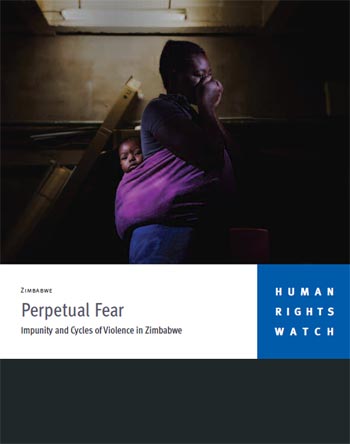Minister and Catholic priest arrested for meeting and healing service
Saturday, April 16th, 2011 by Amanda AtwoodThe front page of The Herald today reads: Minister Arrested. My first thought? Who now.
According to The Herald:
National Healing and Reconciliation co-Minister Moses Mzila-Ndlovu (MDC) has been arrested on allegations of failing to notify police of a meeting held on Wednesday at a primary school in Lupane. . . . Mzila-Ndlovu, the deputy secretary general of the Welshman Ncube-led MDC, was arrested yesterday morning in Lupane on his way to Victoria Falls where he was supposed to address a national healing meeting.
The following statement from ZLHR shares a bit more information about the arrest, and the arrest of Father Mkandla, who was arrested for convening the healing service Mzila-Ndlovu allegedly didn’t tell the police about.
The Church under attack in Zim as police arrest pastor and MP
Police in Lupane have arrested a Catholic Priest, Father Marko Mabutho Mkandla and Bulilima West Member of Parliament Hon. Moses Mzila-Ndlovu for allegedly convening a meeting without notifying the police.
Father Mkandla, who is represented by Nosimilo Chanayiwa of Zimbabwe Lawyers for Human Rights (ZLHR) and Nikiwe Ncube of Webb, Low and Barry Legal Practitioners, who is also a member of ZLHR was arrested on Wednesday 13 April 2011 and charged with contravening the country’s tough security laws.
Police charged Father Mkandla with contravening Section 25 of the Public Order and Security Act (POSA) after he allegedly convened a healing service at Silwane Primary School in Lupane, Matabeleland North without notifying the police.
The police also charged Father Mkandla with contravening Section 31(a) (i) of Criminal Law (Codification and Reform) Act for allegedly communicating falsehoods prejudicial to the State and violating Section 42 (2) of Criminal Law (Codification and Reform) Act, that is causing offence to persons of a particular race or religion.
Father Mkandla was also charged with contravening the Censorship and Entertainment Control Act for allegedly possessing pornographic material. Although the police record at Lupane Police Station showed that Father Mkandla was released on Friday 15 April 2011 and transferred to Bulawayo Police Station, his whereabouts were not known late on Friday.
On Friday 15 April 2011, the police arrested Hon. Mzila-Ndlovu. ZLHR lawyers attended to the Bulilima legislator and will attend to him again on Saturday 16 April 2011.
Meanwhile, an Associated Press story puts the two incidents together and helps make more sense of the whole thing. Except that none of it makes any sense. Arrest a priest for holding a healing service. Arrest the Minister of National Healing for attending it (and when he’s on his way to address another national healing meeting)? You can’t make things like this up, they’re so absurd.










